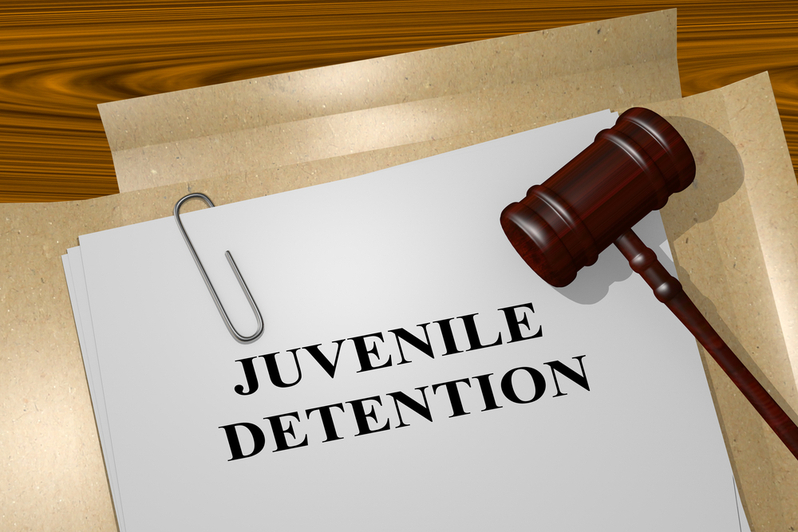

It’s been an ongoing debate in Louisiana that the state will benefit from reforming its system of juvenile justice. Last year, the state opted to have 17-year-olds arrested for nonviolent crimes viewed as juveniles in Louisiana’s criminal justice system.
Known as the Raise the Age Louisiana Act, it was part of a package of juvenile justice reforms, and the main goal was to keep 17-year-olds safer while they’re incarcerated so they’re in a population of their peers rather than adults. The law was also intended to ensure they don’t leave the system with a permanent criminal record that hurts their ability to find a job or go back to school.
It was also a recognition on the state’s part that there are significant differences between Louisiana’s Juvenile Justice System, and the one for adults. Understanding those differences can provide a clearer view of why the state wants to make these changes.
How are Juveniles Tried for Crimes in Louisiana?
One of the similarities between how juveniles are tried in Louisiana compared to adults is the rights they’re given. Whether you’re under 18 or much older, defendants have the same constitutional rights. That includes the right to:
- Be represented in court by legal counsel
- Due process
- And the right of appeal your verdict
The state also has to prove that a defendant was guilty of the charge beyond a reasonable doubt, regardless of their age.
However, there are significant differences as well.
All juveniles court proceedings are done in secret to protect the underage defendant, and in a sense, the juvenile court also acts as a parent for the juvenile. Records from these proceedings are sealed forever, and can only be unsealed under very specific circumstances. The public, prospective employers and even private investigators generally do not have access to those records.
A limited number of people are allowed inside the courtroom during a case involving a juvenile. Besides the defendant, that includes:
- The child’s parents
- The child’s legal counsel
- The prosecutor or district attorney
- Court officers who conduct the trial
- Witnesses called by both parties
Why are Juvenile Cases Kept Confidential?
Part of the state’s goal through its juvenile justice system is to rehabilitate teens. Rehabilitation is a far bigger goal, in fact, than punishment.
Cases heard in juvenile court tend to fall into two categories, Delinquency and Families in Need of Services. A delinquent act would be anything that’s also considered a crime for an adult. If it’s an act that an adult would not be charged with — such as being a runaway, underage drinking or truancy from school — those would be FINS cases.
For delinquency cases, the juvenile court has jurisdiction over children from ages 10 through 16, and now 17 years old for offenses that are non-violent. Juveniles ages 9 or younger accused of a delinquent act are treated as FINS cases.
There are instances when a juvenile accused of a crime of violence can be tried as an adult and transferred to the adult criminal court. Certain criteria must be met, though. If the defendant is 14, the juvenile court judge will decide if the juvenile should be tried as an adult. If the defendant is 15 or 16, they would need to be indicted by a grand jury.
Why is Louisiana Re-Examining Its Juvenile System?
Louisiana has been working to reform a system that was viewed as being too harsh on teens, and try to find ways to put more of the focus on rehabilitation. Raise the Age law was a part of that, to no longer automatically arrest, detain and prosecute 17-year-olds as adults if their offenses weren’t violent. By taking teens out of a much harsher adult system, advocates for children’s rights believe these changes will be better for both the kids and the communities.
A 2006 study indicated that 73% of children in Louisiana’s juvenile prisons suffer from some form of mental illness, while national estimates indicate that up to 70% of children in juvenile facilities have a learning disability. It’s believed that children diverted away from the adult system are less likely to recidivate and reenter the system. For many advocates of change, keeping as many teens out of the adult system is a way to keep them from never leaving the system once they become adults.
Find a Reliable Juvenile Defense Lawyer in Louisiana
In Louisiana, The John D. & Eric G. Johnson Law Firm is a recognized source of legal representation for juveniles who have been arrested. We have more than 25 years of experience winning cases for ordinary citizens in situations just like yours. Our lawyers are members of the Louisiana Bar Association and the National Association of Criminal Defense Lawyers. Eric Johnson is a problem solver with a successful track record. He has served clients facing all kinds of criminal charges throughout Louisiana, and is ready to help solve your problems, too.
To schedule a free consultation call 318-377-155 or contact us online today.
